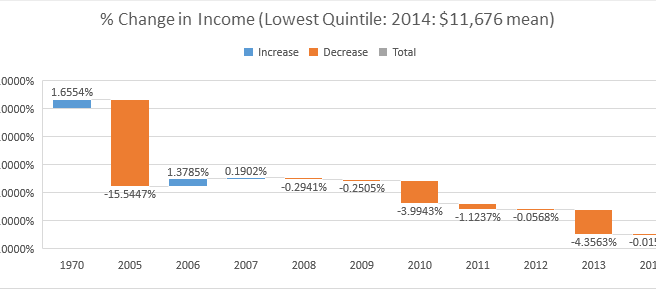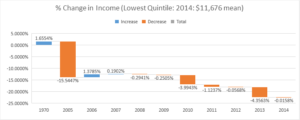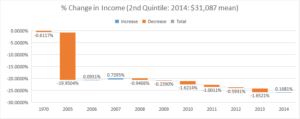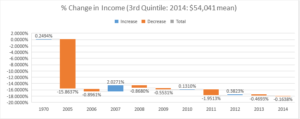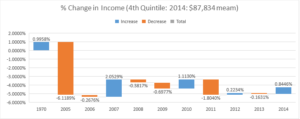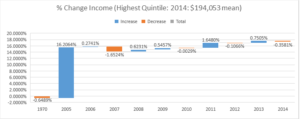I want you to write down what you think about Hillary Clinton and Donald Trump. Don’t overthink it, if you think Trump is a racist write that. If you think Hillary is a liar, write that.
Then I want you to write down WHY you believe that. Try and be as specific as possible. If Trump is a racist, why? What did he say? What did he do? When did he say and do those things? Where did you hear about it?
Now do the same for Clinton. You think she screwed up with her email server? Ok. Why? You think she caters to Wall Street and is in the pocket of big banks… fine. How come? Where did you hear about that?
I did this myself and what I found out was I actually have FAR more confidence in my conclusions than my underlying information justifies.
CLINTON
I didn’t fully trust Clinton because of the private email server stuff as well as her connections to Wall Street, her high income, prior real estate dealings. I thought she sounded a bit overly aggressive on one hand and also kind of “fake woman of the people.”
TRUMP
For Trump it was much stronger. I thought he was a bigot, a cheat, a self serving arrogant promoter preying on people’s fear and ignorance. I know about Trump university (from reading articles somewhere?), I know about him wanting to build a wall (from his website), his desire to deport Muslims (from retweets and articles).
To my shock and surprise I could really not really recall specifics. I hadn’t read any of Clinton’s emails that are available to see WHAT she said. I went to Trump’s site and checked out his policies and read some articles online, but I hadn’t really dug deep into things he had written (now or before), looking at in depth interviews… sure I’ve seen debates and collections of public appearances, but nothing super deep. My conclusions were strong, but my evidence was superficial at best.
IT GETS WORSE
Now consider this.
Try and recall WHERE you got that information from and who wrote it? Was it an online newspaper? Was it a series of retweets? Was it facebook shares in your stream… if so, where did THEY come from? What was the position or agenda (if any) of the person who created this material?
I actually could tell you almost nothing about any of that. I have no idea who wrote what about the people that are running for president so I couldn’t tell you if THEY are “good” or “bad.”
What I DID learn is that I have massive confirmation bias. I THINK that I have deep knowledge about things I care about a lot, but I don’t.
Now… I know that there are people who follow these things closely and know A LOT about the candidates, especially the one they like. But I think they probably know A LOT LESS about the candidate they don’t like; and I suspect that there is even stronger confirmation bias going on.
The vast amount of information available combined with the advanced technology to segment and search makes it possible to paint nearly any picture of reality you care for.
Imagine your own situation.
Let’s say that a large group of well paid, super motivated and highly intelligent people wanted to paint you in a certain light. Within their reach is ALL the information about you that exists. All the things you buy and sell, the places you’ve worked and people you worked with. Maybe your past 10-20 years of emails. All the websites you’ve joined and looked at. Where your kids went to school. All the information about your parents, siblings, friends. Now imagine they want to paint you in either a bad or good light. Do you think that would be possible? Do you think it would accurately reflect who you think you are?
SO WHO DECIDES?
This goes back to a book called “Public Opinion” by Walter Lippmann. In it, he explores this topic deeply. His conclusions are as true today as they were nearly 100 years ago. Our opinions are made up by forces quite beyond our control, out of our sight, and in a largely unconscious way. We don’t have the time, intellect or desire to understand thousands of complex topics in depth and then deliberate to come up with a “real” opinion. So we must use shortcuts. We trust people we regard as legitimate, we parrot our parents and mentors. We listen to our friends. We listen to media. Thus, paraphrasing Lippmann, a functioning democracy MUST have experts who can manipulate and manage the public mind… manufacturing consent as the term goes.
That’s why it’s so important to hit all these areas when you are running for office. In fact saying that you DON’T care about these things is one of the most important messages to get out there.
Think about that.
It takes A LOT of message volume to communicate and convince large groups of people that you are not focused on telling them what they want to hear :). Is it believable that someone who doesn’t care about that could possibly get their voice heard in such a loud, busy and crowded arena. I don’t think so.
The campaign managers who are focused 100% of the time on getting people to believe what they want are going to be much better at this than you or I can be in our short, busy, crowded days.
SO WHAT DO WE DO?
I don’t really know. I tried to read through all the emails that were released, but there are 1925 of them. The ones I DID read were mostly one or two line responses she gave saying “Interesting.” “Pls Print,” and “Have a happy holiday.” I’m sure there’s some meat in there somewhere, but man… do I want to spend 4 hours digging it up? NO!
So how do I know what she said. Well, I’ll go to my trusted news source. But did THEY read the 1925 emails or did they do what I did and rely on someone else who went through them. But who is THAT person, and what is their motivation? Is it possible that actually almost NO ONE has read all those emails and thus the contents and message are just layers of bias with scant evidence? Or maybe 10-15 people have actually read them all and those people have businesses that shape the buyers ability to manage public opinion?
I mean who has the motivation to read all those emails, put them together and summarize conclusions? That is unlikely to be a free and unbiased exercise.
The truth is, to just get an understanding of this one topic in this one election I would have no choice but to read them myself, then familiarize myself with the context, look at other sources, and so on.
It’s simply not possible.
So…what I think has to be done is to treat with skepticism what we read and we ourselves believe. Try to deliberately read things we find grating to our own existing assumptions. We should be deliberate about our ignorance and our biases. We will always have them, but at least we can try to identify them.
Most importantly, I think we need to always keep in mind the possibility that we are totally wrong and when we find something important that we care about we really need to understand opposing sides as well as our own… not to change our minds or to be wishy washy, but to make sure we can clearly understand and articulate what our biases and assumptions are. I think that will at least give us a chance at arriving at a reasonable conclusion in any topic.
